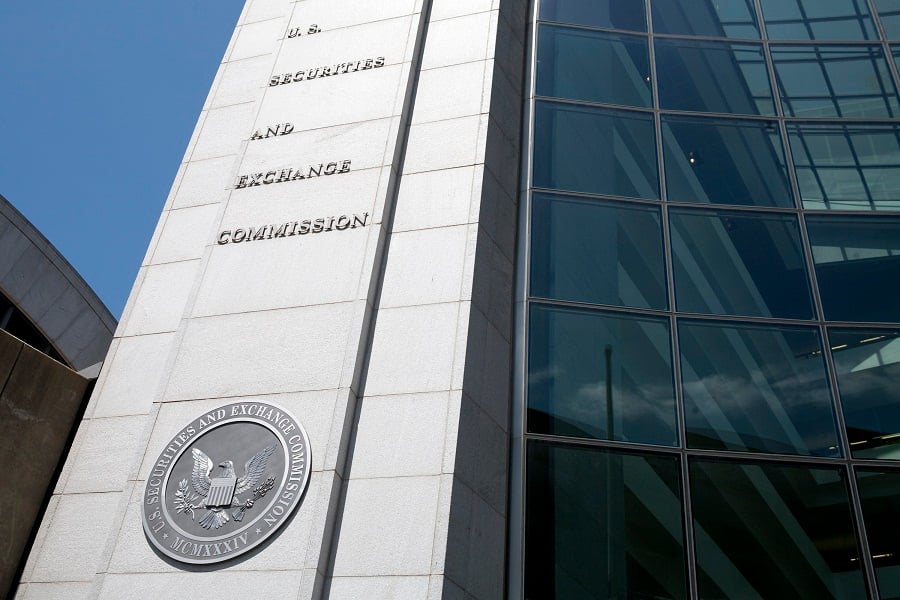

The Securities and Exchange Commission warned investment advisers and brokers on Wednesday to beef up their monitoring of fees and expenses and increase supervision of personnel and handling of client assets due to challenges posed by COVID-19.
In a risk alert, the SEC’s Office of Compliance Inspections and Examinations said it has observed a number of pandemic-related compliance issues and recommended that financial firms consider changing some operational practices to address them.
For instance, the agency said market volatility and financial pressure on firms may be increasing conflicts of interest, such as recommending inappropriate rollovers from company retirement plans to individual retirement accounts, borrowing or taking loans from clients or recommending high-fee investments that benefit advisers and brokers.
The alert also highlighted concerns about errors in calculating advisory fees that result in over-billing of clients.
“The recent market volatility and the resulting impact on investor assets and the related fees collected by firms may have increased financial pressures on firms and their personnel to compensate for lost revenue,” the alert states. “While these incentives and related risks always exist, the current situation may have increased the potential for misconduct.”
The SEC told firms to identify transactions that resulted in high fees for investors and evaluate whether they were in the investors’ best interests. They also should examine risks associated with borrowing from clients.
Other areas covered by the risk alert include protection of investor assets and information, supervision of personnel, investment fraud and business continuity.
Firms should increase protections around collecting and processing investor checks and transfer requests, especially those that are received through the mail, the agency said.
“OCIE also encourages firms to review and make any necessary changes to their policies and procedures around disbursements to investors, including where investors are taking unusual or unscheduled withdrawals from their accounts, particularly COVID-19 related distributions from their retirement accounts,” the risk alert states.
As firms have shifted to teleworking arrangements during the pandemic, the risk alert recommended that they modify their compliance policies and procedures to address “supervisors not having the same level of oversight and interaction with supervised persons when they are working remotely.”
The increased use of electronic communication also is putting a premium on protecting customer information.
“OCIE recommends that firms pay particular attention to the risks regarding access to systems, investor data protection, and cybersecurity,” the alert states.

Canadian stocks are on a roll in 2025 as the country prepares to name a new Prime Minister.

Two C-level leaders reveal the new time-saving tools they've implemented and what advisors are doing with their newly freed-up hours.

The RIA led by Merrill Lynch veteran John Thiel is helping its advisors take part in the growing trend toward fee-based annuities.

Driven by robust transaction activity amid market turbulence and increased focus on billion-dollar plus targets, Echelon Partners expects another all-time high in 2025.

The looming threat of federal funding cuts to state and local governments has lawmakers weighing a levy that was phased out in 1981.
RIAs face rising regulatory pressure in 2025. Forward-looking firms are responding with embedded technology, not more paperwork.
As inheritances are set to reshape client portfolios and next-gen heirs demand digital-first experiences, firms are retooling their wealth tech stacks and succession models in real time.
